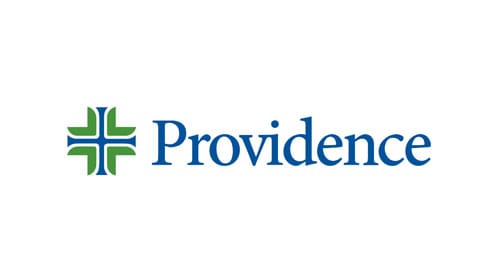Cancer studies seek to harness the power of the immune system
May 2024
In recent years, there have been promising developments in the field of cancer research, particularly in immunotherapy approaches, such as immune checkpoint inhibitors and vaccines.
The three studies featured here are exploring novel ways to harness the power of the body’s immune system to target and destroy cancer cells more effectively.
A study initiated at Earle A. Chiles Research Institute, a division of Providence Cancer Institute of Oregon, is specifically designed for patients with uveal melanoma, a type of cancer that originates in the uveal tract of the eye. Another study for patients with melanoma is evaluating a cancer vaccine in combination with an immunotherapy. The third study is a National Cancer Institute-supported study, initiated at Earle A. Chiles Institute, for patients with melanoma and/or head and neck squamous cell carcinoma.
Read on to find out why these studies are important to developing more effective cancer treatments.
Study looks for synergistic therapeutic effect in a combination of agents
Metastatic uveal melanoma has a poor prognosis, the average survival time for patients is 6-12 months. This is due in part because of the aggressive nature of the disease, its tendency to spread to vital organs and a lack of effective treatments.
A study initiated at Earle A. Chiles Research Institute hopes to meet this critical need by evaluating a combination of lenvatinib and pembrolizumab in treating patients with metastatic uveal melanoma. The clinical trial is currently enrolling patients at Providence Cancer Institute. The principal investigator is Matthew Taylor, M.D., co-medical director, Providence Melanoma Program, and medical director, Providence Thyroid Cancer Program.
Why lenvatinib and pembrolizumab?
Several factors contribute to tumors evading the immune system, such as failure of T cells to become activated, T cells being excluded from entering the tumor site, and T cell exhaustion. Also, certain proteins produced within tumors, such as VEGF and PD-L1 can suppress the immune response in tumors.
Lenvatinib is a tyrosine kinase inhibitor that blocks the harmful effects of VEGF within tumors. This drug directly slows the growth of tumors and helps activate the immune system to fight cancer.
Pembrolizumab is a medication approved by the FDA that targets PD-1. In addition to receiving FDA approval for treating advanced melanoma, pembrolizumab is approved for treatment in many other types of cancer.
Studies show the combination is effective
In past studies, treatment with the combination of lenvatinib and pembrolizumab showed impressive efficacy in patients with advanced endometrial and kidney cancers. The results of these clinical trials led to the FDA approval of lenvatinib and pembrolizumab for patients with those specific diseases.
Investigator-initiated study at Providence
The phase II clinical trial open at Providence Cancer Institute is available to adults with immune checkpoint inhibitor-naïve metastatic uveal melanoma.
Eligible participants are treated with the combination of 20 mg of lenvatinib daily, plus 200 mg IV of pembrolizumab every three weeks for a maximum of two years.
To learn more or refer a patient go to:
mRNA vaccine as a potential treatment for melanoma
In February 2024, The Lancet published a primary analysis of a phase II study evaluating a novel mRNA-based individualized neoantigen therapy called mRNA-4157. The study was designed to determine whether mRNA-4157 combined with pembrolizumab improved recurrence-free survival and distant metastasis-free survival, compared to pembrolizumab alone in high-risk melanoma following surgical removal of the tumor.
The results of the randomized study showed that adjuvant mRNA-4157 plus pembrolizumab prolonged recurrence-free survival compared to pembrolizumab alone. It also was well tolerated.
Expanded study enrolling patients
Now, the study is being amended to add approximately 100 patients with high-risk melanoma. The phase IIb study will follow the same study design and randomization approach as the published study with the following aims:
- To obtain additional clinical datasets and include longer clinical follow-up to better understand the safety and efficacy profile of mRNA-4157 in combination with pembrolizumab.
- To further address exploratory translational study objectives.
This study, known as KEYNOTE-054, is enrolling patients at Providence Cancer Institute. This is the only site in Oregon enrolling patients in the study. The principal investigator is Matthew Taylor, M.D., co-medical director, Providence Melanoma Program.
Patients enrolled in the study will be randomly assigned in a 2:1 ratio to the combination arm where approximately 67 patients will receive mRNA-4157 and pembrolizumab. The control arm will enroll approximately 33 patients who will receive pembrolizumab alone.
Why mRNA-4157 and pembrolizumab?
mRNA-4157 is a personalized cancer vaccine that consists of a single mRNA (messenger RNA) that provides instructions to cells to produce proteins to help the immune system recognize and attack cancer cells.
Checkpoint inhibitors such as pembrolizumab have been shown to prolong recurrence-free survival in patients with resected high-risk melanoma.
Based on what was learned in early trials, the FDA granted breakthrough therapy designation to mRNA-4157 in combination with pembrolizumab as post-surgical treatment in patients with high-risk melanoma.
KEYNOTE-054 is an opportunity to further explore the potential of this combination to treat patients with melanoma, improving outcomes and survival rates.
To learn more or refer a patient go to:
Read the article in The Lancet.
Galectin-3 inhibitor evaluated in NIH-supported study
A new investigator-initiated study at Providence Cancer Institute will evaluate if the addition of GB1211 increases the response rate of pembrolizumab in patients with metastatic melanoma and head and neck squamous cell carcinoma (HNSCC).
The co-principal investigators are Brendan Curti, M.D., medical director, Melanoma Program, Cytokine and Adoptive Immunotherapy, Providence Cancer Institute, Robert W. Franz Endowed Chair for Clinical Research; and William L. Redmond, Ph.D., member, Cancer Immunotherapy Laboratory and director, Immune Monitoring Laboratory, Earle A. Chiles Research Institute.
GB1211 is a galectin-3 inhibitor candidate developed by Galecto, and pembrolizumab is a checkpoint inhibitor.
Study designed with placebo control group
This phase II study will employ a fixed dose of GB1211 in conjunction with the standard therapeutic dose of pembrolizumab in patients with unresectable or metastatic melanoma or recurrent or metastatic HNSCC progressing during or after platinum-containing chemotherapy.
The study also has a placebo control group, which is important to verify the hypothesis about the impact of galectin-3 on immune responses and help researchers understand how pembrolizumab works at a deeper level.
In addition to monitoring for toxicity and clinical response, biospecimens will be collected to assess immunologic measures relevant to galectin biology and T-cell checkpoint inhibition. Tumor volume will be assessed by immune response RECIST criteria.
Study supported by R01 grant
Based on the translational research and findings of the phase I study, Drs. Curti and Redmond were awarded an R01 Research Project Grant from the National Cancer Institute, National Institutes of Health. The award has allowed them to launch this phase II trial, which is currently enrolling patients.
Get the details of the study here:
Learn more about the study in the latest InScope article.
Refer a patient
To refer a patient to one of these clinical trials, contact our clinical research office:
- Call 503-215-2614
- Send an email
New research studies are added frequently. To see more clinical studies, visit:
- Studies for multiple tumor types
- All cancer studies at Providence Cancer Institute
Learn more about Earle A. Chiles Research Institute.
Related news
Providence researchers contribute study findings at ASCO 2024 meeting
Providence Cancer Institute celebrates historic milestone to finish cancer



